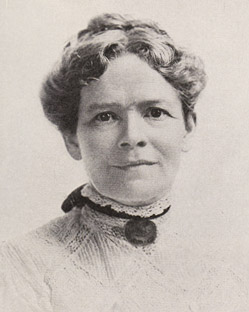A Quote by Aldous Huxley
The poet is born with the capacity of arranging words in such a way that something of the quality of the graces and inspirations he has received can make itself felt to other human beings in the white spaces, so to speak, between the lines of his verse. This is a great and precious gift; but if the poet remains content with his gift, if he persists in worshipping the beauty in art and nature without going on to make himself capable, through selflessness, of apprehending Beauty as it is in the divine Ground, then he is only an idolater.
Quote Topics
Arranging
Art
Beauty
Beings
Between
Between The Lines
Born
Capable
Capacity
Content
Divine
Felt
Gift
Going
Graces
Great
Ground
Himself
His
Human
Human Being
Human Beings
Inspirations
Itself
Lines
Make
Nature
Only
Other
Poet
Precious
Precious Gift
Quality
Received
Remains
Selflessness
Something
Spaces
Speak
Such A Way
Then
Through
Verse
Way
White
White Space
Without
Words
Related Quotes
A poet dares to be just so clear and no clearer; he approaches lucid ground warily, like a mariner who is determined not to scrape his bottom on anything solid. A poet's pleasure is to withhold a little of his meaning, to intensify by mystification. He unzips the veil from beauty, but does not remove it. A poet utterly clear is a trifle glaring.
One more royal trait properly belongs to the poet. I mean his cheerfulness, without which no man can be a poet,--for beauty is his aim. He loves virtue, not for its obligation, but for its grace; he delights in the world, in man, in woman, for the lovely light that sparkles from them. Beauty, the spirit of joy and hilarity, he sheds over the universe.
From the point of view of the Christian faith, man comes in the profoundest sense to himself not through what he does but through what he accepts. He must wait for the gift of love, and love can only be received as a gift... One must wait for it, let it be given to one. And one cannot become wholly man in any other way than by being loved, by letting oneself be loved... If he declines to let himself be presented with the gift, then he destroys himself.
Whoever accepts the higher mission of art and comes nearer and nearer to it through his creative activity, will then go on from art to the Spirit deep within his own self... The philosophic search for enlightenment and the artist's search for perfection of work can meet and unite. Art can be a path to spiritual enlightenment but not to complete and lasting enlightenment. It can be born out of, and can give birth itself to, only Glimpses. For art is a search for beauty, which by itself is not enough. Beauty must be supported by virtue and both require wisdom to guide them.
Many are the noble words in which poets speak concerning the actions of men; but like yourself when speaking about Homer, they do not speak of them by any rules of art: they are simply inspired to utter that to which the Muse impels them, and that only; and when inspired, one of them will make dithyrambs, another hymns of praise, another choral strains, another epic or iambic verses- and he who is good at one is not good any other kind of verse: for not by art does the poet sing, but by power divine.
I have to seek God beauty. Because isn't my internal circuitry wired to seek out something worthy of worship? . True Beauty worship, worship of Creator Beauty Himself. God is present in all moments, but I do not deify the wind in the pines, the snow falling on the hemlocks, the moon over harvested wheat. Pantheism, seeing the natural world as divine, is a very different thing than seeing divine God present in all things . Nature is not God but God revealing the weight of Himself, all His glory, through the looking glass of nature.
To be a musician is a great privilege but it is also a very great responsibility. One must think that to be a musician is a gift - a gift from Nature. There is no great merit in us except in loving this gift with respect and devotion and doing everything possible to honor that gift by work and more work. We must work with conviction and humility, searching for beauty, simplicity, and the Truth. And it is for us musicians to do all in our power for a better world. Music must carry the message of beauty, of love and of peace.
There is this tendency to think that if you could only find the magic way, then you could become a poet. "Tell me how to become a poet. Tell me what to do." . . . What makes you a poet is a gift for language, an ability to see into the heart of things, and an ability to deal with important unconscious material. When all these things come together, you're a poet. But there isn't one little gimmick that makes you a poet. There isn't any formula for it.
For not by art does the poet sing, but by power divine. Had he learned by rules of art, he would have known how to speak not of one theme only, but of all; and therefore God takes away the minds of poets, and uses them as his ministers, as he also uses diviners and holy prophets, in order that we who hear them may know them to be speaking not of themselves who utter these priceless words in a state of unconsciousness, but that God himself is the speaker, and that through them he is conversing with us.





































